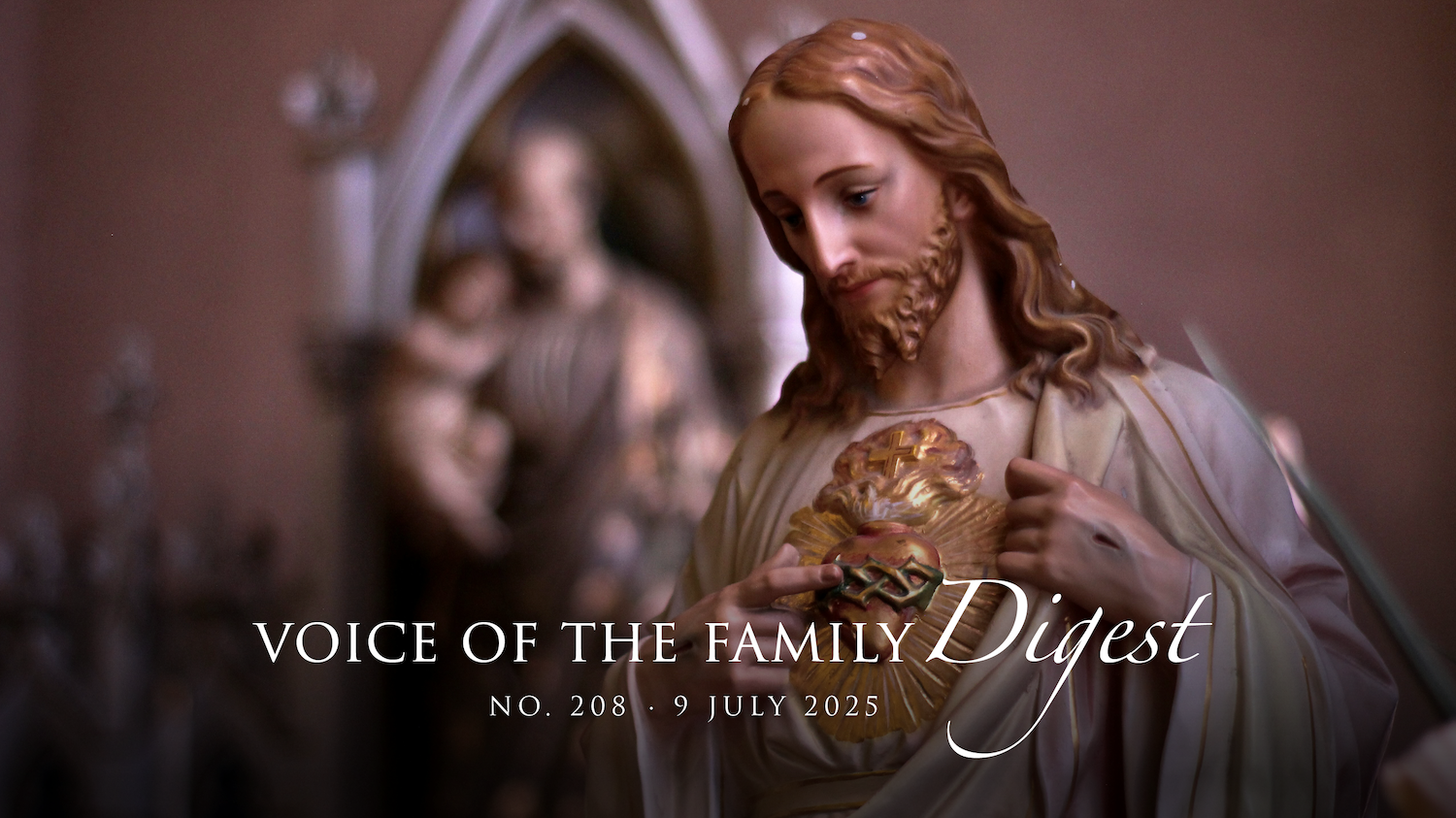Meekness and peace: sermon on the fifth Sunday after Pentecost
By a Dominican Friar | 9 July 2025

“Whosoever is angry with his brother shall be in danger of the judgement.”
A couple of weeks ago, we celebrated the feast of the Sacred Heart of Jesus. He Himself spoke of this mystery at one place in the gospel, saying, “Learn of me, because I am meek, and humble of heart.” What is meekness? It’s not always well understood. It is sometimes confused with weakness, partly just because the two words sound alike. But in fact meekness is a virtue, which means that it is a kind of strength. It means having the strength not to let one’s soul be defiled by anger.
Every good doctor, after all, knows that little scratches, if left untended, can lead to terrible infections. But the same thing is true of the soul: if we ignore small passions they can grow into great evils. Where do feuds and murders begin, if not with small feelings of anger that were allowed to grow unchecked? And so, Christ, as the good physician of our souls, wants us to be from all irrational anger. This is what He is speaking of in this Sunday’s gospel.
But the two extra motives that He gives us for freeing ourselves from anger both contain something surprising. First, in His words about judgement. “You have heard that it was said to them of old … whosoever shall kill, shall be in danger of the judgement. But I say to you: that whosoever is angry with his brother shall be in danger of the judgement.” Anyone who killed a man would of course have been brought before one of the regular courts of the Jews to stand trial. So, is our Lord predicting a time when people will be summoned before a human judge simply for indulging some angry thoughts about a brother? Of course not: He is reminding us that such inner thoughts and feelings, though they fall outside every merely human jurisdiction, nevertheless come within His own. At our particular judgement at the moment of death, His light will search our hearts: it will reveal each little grudge that we have harboured against a brother or sister during our lives. Perhaps more souls than we suspect are detained in purgatory for clinging to such grudges.
Still on this question of judgement, He goes on, “Whosoever shall say to his brother: Raca, shall be in danger of the council.” The council means the synagogue: the highest court of the Jews. So, is He predicting a time when Jews would be brought before the synagogue, or perhaps Catholics summoned before the pope and cardinals, for the crime of muttering angrily about a brother under their breath? Again, no. He is speaking this time, I think, of the general judgement, at the end of the world. For He will come to judge then not alone but rather, as St Jude says, “with thousands of his saints”. They will form the “council” of which He speaks, when public sins, including angry outbursts, will be publicly reproved.
I turn now to the other motive that Christ gives us for meekness. What is this motive? It is that anger makes our sacrifices less powerful. “If thou offer thy gift at the altar,” He says, “and there thou remember that thy brother hath anything against thee, leave thine offering before the altar, and go first to be reconciled to thy brother.” Notice, by the way, that our Lord is teaching here that His followers will have an altar and something to offer upon it. That goes against the Protestant idea that Christ came to institute a form of religion with no altars or sacrifices. In fact, He has given us, as the Council of Trent puts it, “a visible sacrifice such as the nature of man requires”, and this sacrifice is of course the Holy Mass.
But what do we learn about this sacrifice from these words of the gospel? We learn that it is more pleasing to God when those who offer it are at peace with one another — more pleasing to God, and therefore more beneficial for us. Nor is it only those who are praying with us in the same stone building with whom we should strive to be at peace. The whole Church throughout the world is one Body, and evil feeling between any two of its members, even if one of them is in England and the other in Timbuctoo, will hamper the flow of grace through that body. This is so important that our Lord doesn’t tell us to try to be reconciled just if we have anything against our brother, but if our “brother hath anything against us”. We are not only to avoid anger ourselves but do our best to mollify others. For as I shall say in the offertory prayer in a few moments, that which each of us offers is meant to be for the profit of all. But finally, will these two motives, the desire to avoid judgement and the desire to make our Holy Mass more powerful, be enough to tear out the roots of anger from hearts? They will help, but I don’t think they will suffice. A special grace is needed, a grace that can come only from the one who is Himself perfectly meek. So, when we have received Holy Communion, and Christ is within us, let us sometimes pray, “O Jesus, meek and humble of heart, make my heart like unto Thine.”
